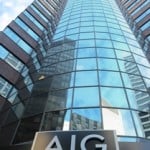Sorry, no content matched your criteria.
Featured Story
Hot Stocks to Watch Today: AIG, GOOGL, TIF, and 9 More Movers

Hot stocks today are moving on analyst upgrades, company news, and Q1 2014 earnings reports.
Today's list of hot stocks to watch includes a luxury jeweler hitting a 52-week high, an online travel company climbing on new analyst coverage, and a handful of eco-friendly firms surging on earnings and company developments.
Check out 12 of Wednesday’s hot stocks on the move, and see what’s behind their action.
Hot stocks today are moving on analyst upgrades, company news, and Q1 2014 earnings reports.
Today's list of hot stocks to watch includes a luxury jeweler hitting a 52-week high, an online travel company climbing on new analyst coverage, and a handful of eco-friendly firms surging on earnings and company developments.
Check out 12 of Wednesday’s hot stocks on the move, and see what’s behind their action.
